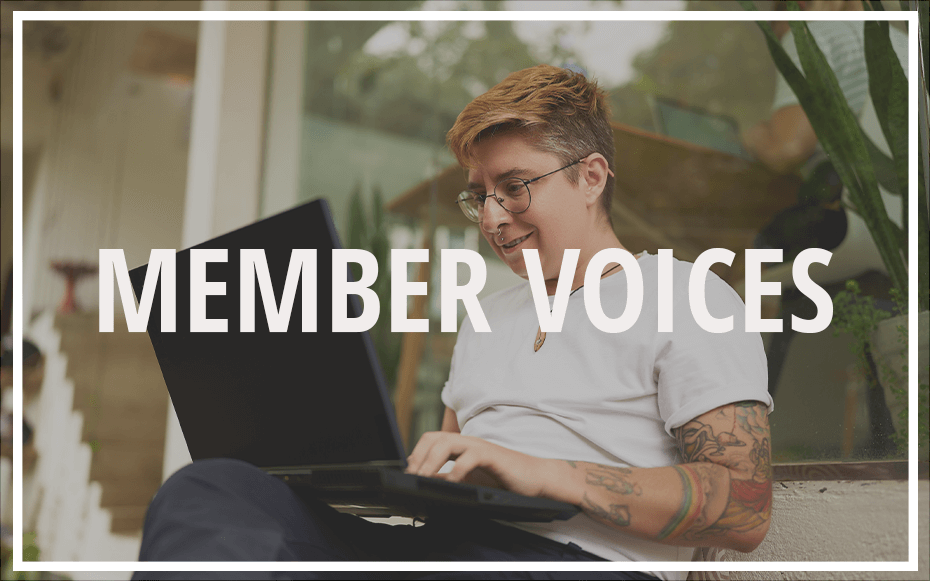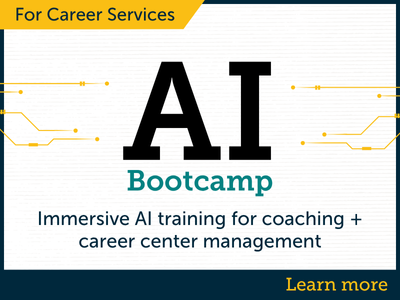As 2020 unfolded, a global pandemic reshaped our lives, and altered how we thought, operated, and executed tasks. In the education sector, the rapid shift from in-person to virtual learning brought to light deep-seated inequities that had been overlooked for decades. It also disrupted teenagers' work, socialization, community involvement, sports, internships, and more. While many of us would prefer to leave the pandemic behind, its effects are still being felt. This is particularly evident in the Class of 2024, which has shown remarkable resilience in the face of the pandemic's impact and will continue to feel its effects for years to come.
Although we are now operating in some form of normalcy or, as some may say, our "new normal," students have encountered employers and educators reimplementing traditional recruiting practices and events from the pre-pandemic norms that now present unseen/seen barriers. For instance, as a director of employer relations, several employers have shared the growing concerns of current students lacking campus involvement and work experience. However, as one reflects on campus activities, such as Greek life or student government, it is usually during their first semester that students browse events, fraternity and sorority rush/initiations, and other on-campus opportunities to develop skills, such as teamwork, planning, communication, and leadership, that students could leverage outside of the classroom. Because of the pandemic, however, many students never got the opportunity to participate in these events, which may have negatively impacted their soft skills.
An example of this can be seen in a January 2024 NACE Insights article. Employers reported that communication, teamwork, and critical thinking were the three essential career competencies. Of those top competencies, students rated their career readiness competencies on average 83%. However, employers reported a much lower rating of student competencies, with an average of 67% when examining the job market's talent pool.
Given this disparity, it's crucial to examine the psychosocial impact of the pandemic on this generation of talent, considering their overall college experience. Traditionally, students' early years in college are about networking, self-development, and honing their soft skills. However, for the most recent graduates, their college years were abruptly shifted to virtual learning, negatively impacting their ability to develop some of these skills. Despite this, many employers still expect students to be actively involved on campus despite the pandemic's disruption of students' ability to gain these skills and experiences in such a short time.
Additionally, as scientists are still grappling with the continuous impact of the pandemic on the mind and body, another encroaching educational effect will impact how students engage on college campuses for the next decades. The knowledge gap that transpired during the pandemic and virtual schooling is a trend that has taken off in the K-12 sector (Bailey et al., 2021) but has not been widely talked about within the higher education sector. For example, students entering college with a knowledge deficiency in core courses, including math, English, and science, can impact their bandwidth for campus involvement.
Furthermore, based on an article published on BestColleges, there has been a change in learning behaviors, specifically college students' time management, dependence on technology, and discomfort with classroom discussion. While career services practitioners think about hiring processes and the many outside factors that can impact it, such as the swift impact of artificial intelligence and anti-DEI legislation, factoring in the many effects of COVID-19 on education is vital to ensuring that expectations for this generation of college students align with where they are in this decade.
Data Collection
Over the last few months, as researcher practitioners, we dove deeper into how COVID-19 has impacted the student experience by crowdsourcing and collecting data from students, career services practitioners, and employers recruiting students in the College of Letters and Science at a large, predominantly white institution (PWI) in the Midwest. For student participants, we specifically engaged with those who enrolled in 2020 and either already graduated in spring 2024 or will be graduating in the latter half of 2024. The goal of sharing these findings with higher education practitioners, career services practitioners, and employers is to challenge the "normalcy" of what the job search and career development process seeks from students and how stakeholders can adapt to this current generation of leaders.
The question posed to participants was, “From your experience, what are some things you noticed that, based on the pandemic, have altered students' college experiences that have or will affect them during the job search process?”
Here are some things we found:
Mental Health Trends
- Students are experiencing high levels of mental health issues. One of the top areas is centered on "anxiety and depression."
- Students are overwhelmed with the thoughts of searching for jobs/internships.
- The high levels of mental health struggles have resulted in “low/lack of confidence.”
Socialization Trends:
- Students are conditioned to remote learning and disconnected from campus and traditional forms of college engagement, so their energy shifts to their social lives, courses, and personal responsibilities.
Workforce Challenge Trends:
- Students are coming in with little or no work experience.
- Students in technology fields are focused on skills rather than holistic development.
- Students in the field of technology fear the economic downfall and upward trend of artificial intelligence leading to mass tech layoffs impacting their career trajectory postgraduation.
- Students learn about companies from accessible news and stories shared by friends.
Student Needs/Wants Trend:
- Students are eager to learn about opportunities and explore career paths without commitment.
- Students want all information to be presented upfront, with clear directions and examples.
- Students with fewer non-family ties, specifically students of color, seek professional mentorship for support.
Conclusion
While students may not align with the pre-pandemic expectations and the skills employers seek, these students have prominent skills such as comfort with evolving technology, a desire to explore, global and cultural fluency, and self-advocacy. As practitioners, we must adapt to the current circumstances with understanding and empathy. Four years after the pandemic, students are creating a two-way street where both parties must understand the needs of one another. For individuals in school before 2019, one carries a privilege with the fluency of their college experience and must remember that someone else's experiences can be vastly different. As we begin to think about the next dimension of college recruitment and employer engagement, it is vital to understand the long-term effects of COVID-19 and approach our work with compassion.
References
Bailey, D. H., Duncan, G. J., Murnane, R. J., & Au Yeung, N. (2021). Achievement Gaps in the Wake of COVID-19. Educational Researcher, 50(5), 266-275. https://doi.org/10.3102/0013189X211011237






